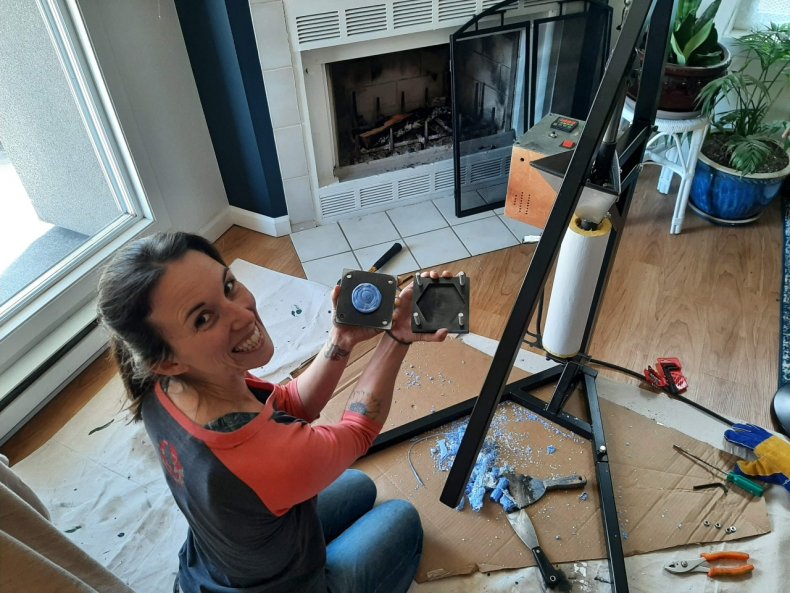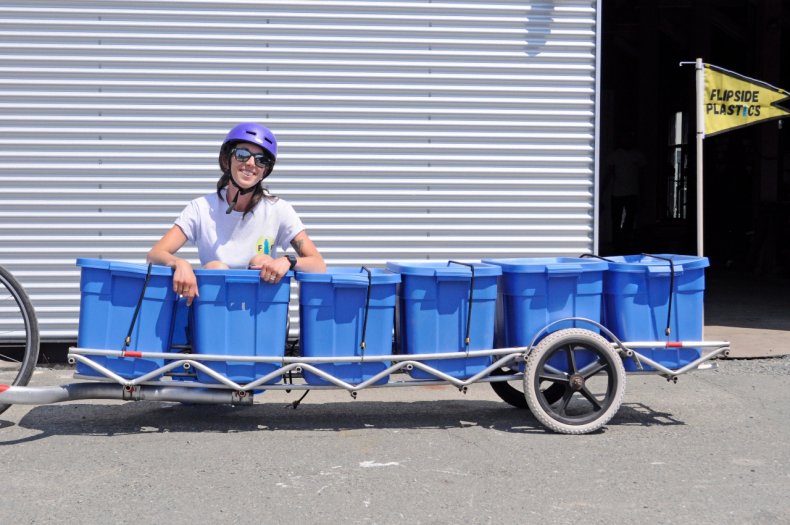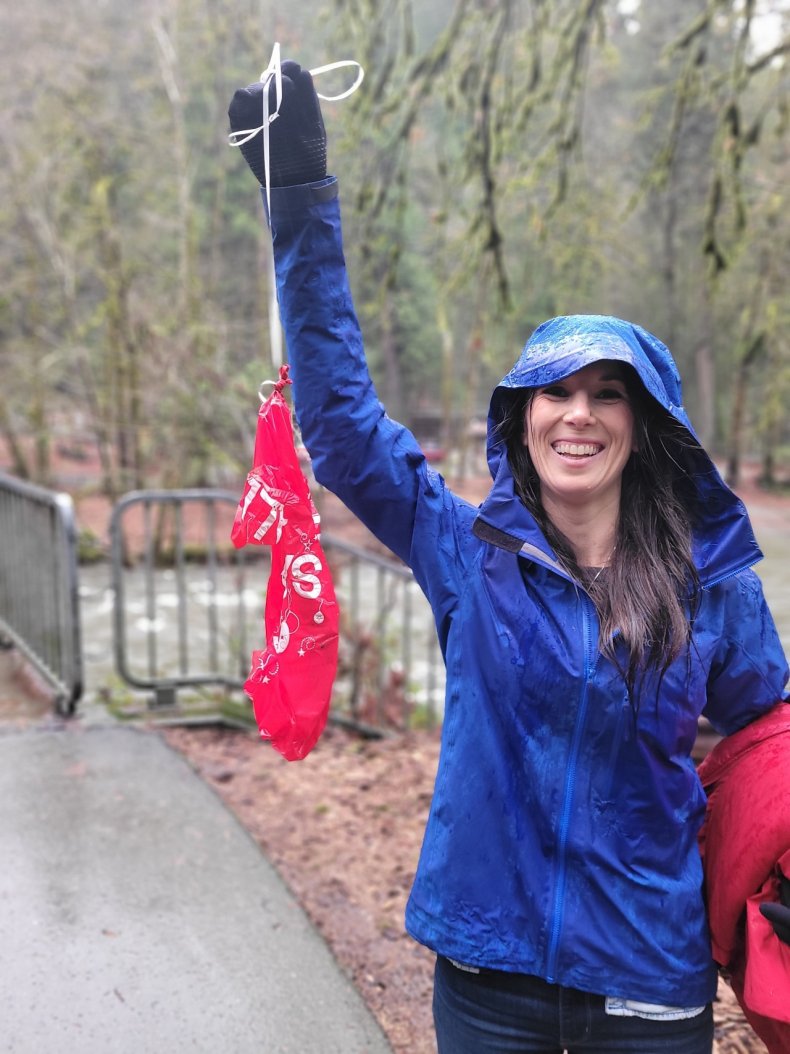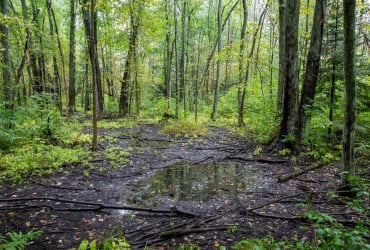As part of a series highlighting the work of young people in addressing the climate crisis, writer Patricia Lane interviews Laska Paré who creates beautiful and useful items from recycled plastic.
Laska Paré
Laska Paré turns coffee cup lids into soap dishes. No — she’s not a magician. This 33-year-old entrepreneur started Flipside Plastics as a circular economic enterprise, recycling plastics on Vancouver Island.
Tell us about your project.
About $8 billion a year worth of plastic is thrown into landfills and will remain there for millennia. Flipside Plastics is a pilot project to see if we can interrupt plastic’s common life cycle of use-waste-pollute with a model of endless reuse, so it is never wasted and, therefore, never pollutes.
We started very small in the spring collecting the lids of disposable coffee cups, shredding and washing them, and turning them into well-designed soap dishes. We have more orders for the soap dishes than we can fill and are now looking to scale up.

What inspired you in this direction?
I was distressed by the daily garbage buckets full of disposable coffee cups and lids at my previous workplace. I started a campaign, which I called “Mugshot,” encouraging my colleagues to “kill plastics” by taking a “mugshot” of themselves with their own cup. When I started my own business, I wanted to contribute to a healthier planet. Then COVID-19 hit, and we could no longer use our own cups for take-out. The waste really bothered me. Paper coffee cups can be recycled. I wondered if we could recycle lids.
I needed something small to test the idea that we could remove plastic already in our economy from the waste stream. Coffee cup lids are easily washed, lightweight, and small, making the reuse process easier.
With the help of a grant from the British Columbia government, I hired a small team and arranged for a volunteer to use his cargo bicycle to collect coffee cup lids from four local Victoria coffee shops. We shred and wash them and when market research revealed interest in well-designed, premium-priced soap dishes, we started to make them from recycled plastic. We are now at the sales end of the first year of our business and have a shortage of source plastic to meet the demand. Coffee shops really like these products because they are able to reassure customers concerned about plastic waste. Coffee consumers using disposable cups find them reassuring, too.
Laska Paré turns coffee cup lids into soap dishes. No, she’s not a magician. This 33-year-old started Flipside Plastics as a circular economic enterprise, #recycling #plastics on Vancouver Island.

What is next?
Scaling up might mean more specialization. I might outsource the collection and use recycled reusable plastic pellets. I don’t know the final products yet, as market research is underway, but there seems to be potential in things people see every day, such as coasters, high-end bath kit sets, or small pieces of multi-use furniture that would let them see a sustainable future is possible with their help.
What makes your work hard?
I cannot sign a standard five-year lease when I have not yet proved my concept and I must locate my machines in areas zoned for light industry. There is very little space available for small manufacturers and it is fiercely expensive. Politicians, bureaucrats, customers, and suppliers are supportive. But when the rubber hits the road, the changes are alarmingly slow.
What gives you hope?
My volunteers are senior business people who really believe in this concept. My staff is so passionate and driven and we are all so determined to succeed. Their tenacity is infectious. I am participating in a business accelerator program run by the federal government and that is encouraging. We will figure it out.
What drew you into this work?
I grew up in a small town — Strathroy, Ont. The community had a shared ethic of borrowing rather than buying, and as one of four kids in a single-earner household, we mended and made do. My mom was a genius at repurposing garage sale finds and making art out of junk. Avoiding a high-waste consumer lifestyle is part of who I am.

What worries you?
The usual uncertainties of starting a small business have been magnified by COVID lockdowns and the cost of everything skyrocketed with the breakdowns in supply chains. But these concerns are all the more reason for us to learn to stop wasting. Think of the good we could do with that $8 billion if it did not go into the landfill and pollute.
Do you have any advice for young people?
Trust your ideas, especially if you can’t shake them. There were lots of logical reasons for me to not do what I am doing. I kept thinking, “Someone else can do that.” But the concept just stuck to me. Here I am. I have learned so much and every day I make mistakes and learn more. My skill set is so much richer than it would have been. I am very happy.
What would you like to say to older readers?
Recycled products often carry a premium price, and it is tempting just to go for the cheaper option. But not paying the true cost of our stuff is one of the main ways we got into this mess. You can begin to change that now. We can either pay now or future generations will pay much more dearly.

